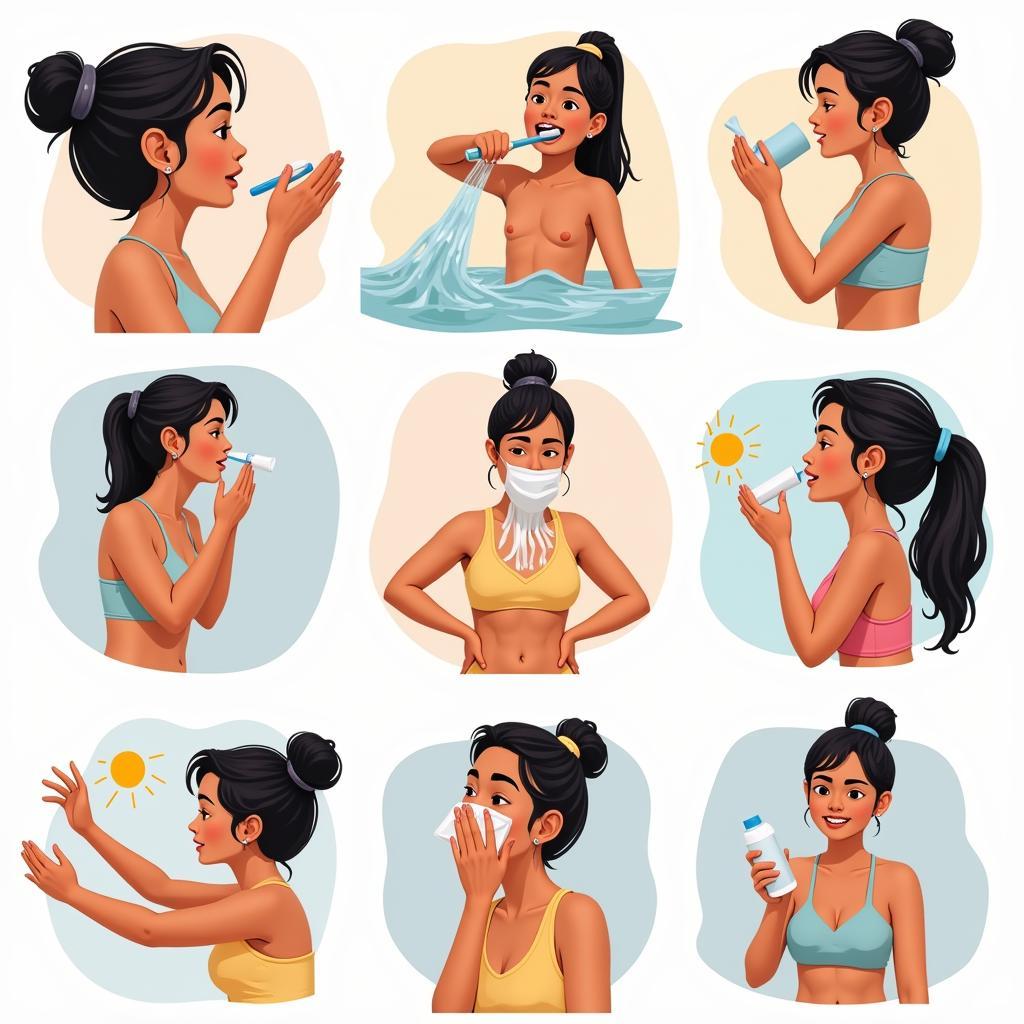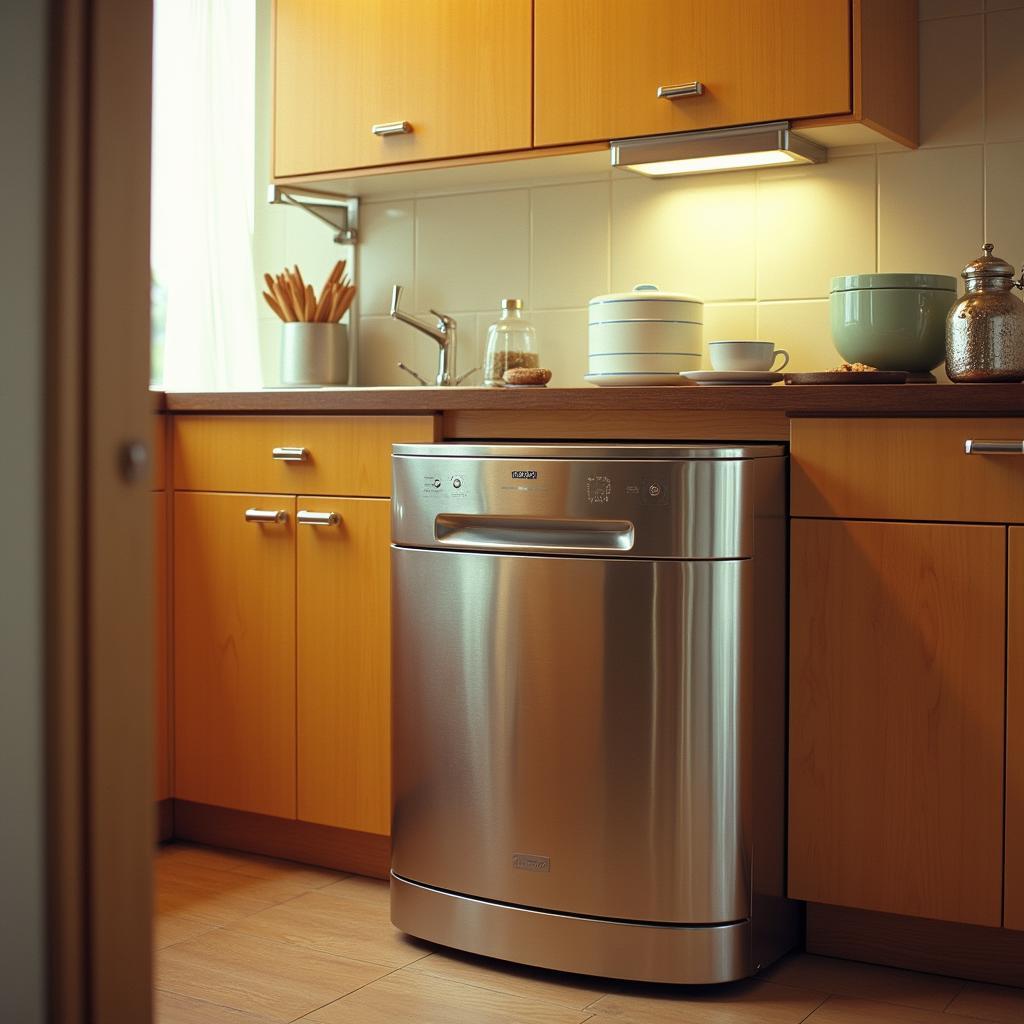Personal hygiene is the foundation of a healthy and fulfilling life. It encompasses all the practices we engage in to maintain our cleanliness and protect ourselves from germs and infections. From showering regularly to brushing our teeth, these seemingly small habits have a profound impact on our overall well-being. Whether you’re at home, at work, or out in the world, adhering to good personal hygiene practices is essential for a happy and healthy you.
Understanding the Importance of Personal Hygiene
Maintaining good personal hygiene is not merely about looking presentable; it’s about safeguarding our health and the well-being of those around us. By adopting hygienic habits, we actively reduce the spread of germs that can cause various illnesses. This is particularly important in crowded places, healthcare settings, and when interacting with individuals who may have weakened immune systems.
20 Essential Personal Hygiene Practices
Here are 20 essential personal hygiene practices that everyone should strive to incorporate into their daily routines:
1. Handwashing:
Wash your hands frequently throughout the day, especially before meals, after using the restroom, and after coughing or sneezing. Use soap and water, lathering for at least 20 seconds, and dry your hands thoroughly with a clean towel.
2. Showering or Bathing:
Shower or bathe daily using warm water and soap. This helps remove dirt, sweat, and bacteria from the skin, leaving you feeling refreshed and clean.
3. Hair Care:
Wash your hair regularly to remove dirt, excess oil, and product buildup. The frequency of hair washing can vary depending on hair type and personal preference.
4. Oral Hygiene:
Brush your teeth twice a day for two minutes each time, using fluoride toothpaste. Don’t forget to floss daily to remove plaque and food particles from between your teeth.
5. Nail Hygiene:
Keep your nails trimmed and clean. Regularly scrub underneath your nails with a nail brush to remove dirt and bacteria.
6. Covering Your Mouth and Nose:
When coughing or sneezing, cover your mouth and nose with a tissue or your elbow. This helps prevent the spread of germs.
7. Avoiding Touching Your Face:
Touching your face can transfer germs from your hands to your eyes, nose, and mouth, increasing the risk of infection.
8. Food Safety:
Wash your hands thoroughly before handling food, and cook food to the appropriate temperature. Store perishable foods properly to prevent bacterial growth.
9. Menstrual Hygiene:
Change sanitary products regularly and dispose of them properly. Wash your hands before and after changing sanitary products.
10. Foot Hygiene:
Wash your feet daily with soap and water, paying attention to the areas between your toes. Dry your feet thoroughly to prevent fungal infections.
11. Clothing Hygiene:
Change your clothes daily, especially underwear and socks. Wash clothes regularly to remove dirt, sweat, and bacteria.
12. Sleep Hygiene:
Wash your bedding, including sheets, pillowcases, and blankets, regularly. A clean sleeping environment promotes better sleep and reduces the risk of allergies.
13. Sun Protection:
Apply sunscreen with an SPF of 30 or higher to exposed skin when outdoors, even on cloudy days. This helps protect against harmful UV rays and reduces the risk of skin cancer.
14. Eye Hygiene:
Avoid rubbing your eyes excessively. If you wear contact lenses, follow the recommended cleaning and replacement schedule provided by your eye doctor.
15. Ear Hygiene:
Clean your ears regularly using a soft washcloth. Avoid using cotton swabs, as they can push earwax further into the ear canal.
16. Hydration:
Drink plenty of water throughout the day to stay hydrated. Water helps flush out toxins and supports overall health.
17. Exercise:
Engage in regular physical activity to improve circulation, boost your immune system, and promote overall well-being.
18. Sleep:
Get enough sleep to allow your body to rest and repair itself. Aim for 7-9 hours of quality sleep each night.
19. Stress Management:
Practice stress management techniques, such as deep breathing exercises, meditation, or spending time in nature, to reduce stress levels.
20. Regular Check-ups:
Schedule regular check-ups with your doctor and dentist for preventive care and early detection of any health issues.
 Essential Personal Hygiene Practices for a Healthier Life
Essential Personal Hygiene Practices for a Healthier Life
Conclusion
By making these 20 personal hygiene practices an integral part of our daily lives, we can create a healthier and happier environment for ourselves and those around us. These seemingly small habits can have a profound impact on our overall well-being, reducing the risk of illness and promoting a sense of cleanliness and confidence.
FAQs
1. How often should I wash my hands?
It is recommended to wash your hands frequently throughout the day, especially before meals, after using the restroom, and after coughing or sneezing.
2. Why is it important to cover my mouth and nose when I cough or sneeze?
Covering your mouth and nose when you cough or sneeze helps prevent the spread of germs that can cause illness.
3. How often should I change my bed sheets?
It is generally recommended to change your bed sheets once a week or more frequently if needed.
4. Is it bad to use cotton swabs to clean my ears?
Yes, it is generally not recommended to use cotton swabs to clean your ears, as they can push earwax further into the ear canal.
5. Why is it important to drink plenty of water?
Drinking plenty of water helps to keep you hydrated, flush out toxins, and support overall health.
If you need further assistance, please contact us:
Phone Number: +84 369020373
Email: [email protected]
Address: Ngoc Lien Village, Hiep Hoa, Bac Giang, Vietnam.
Our customer support team is available 24/7 to assist you.


